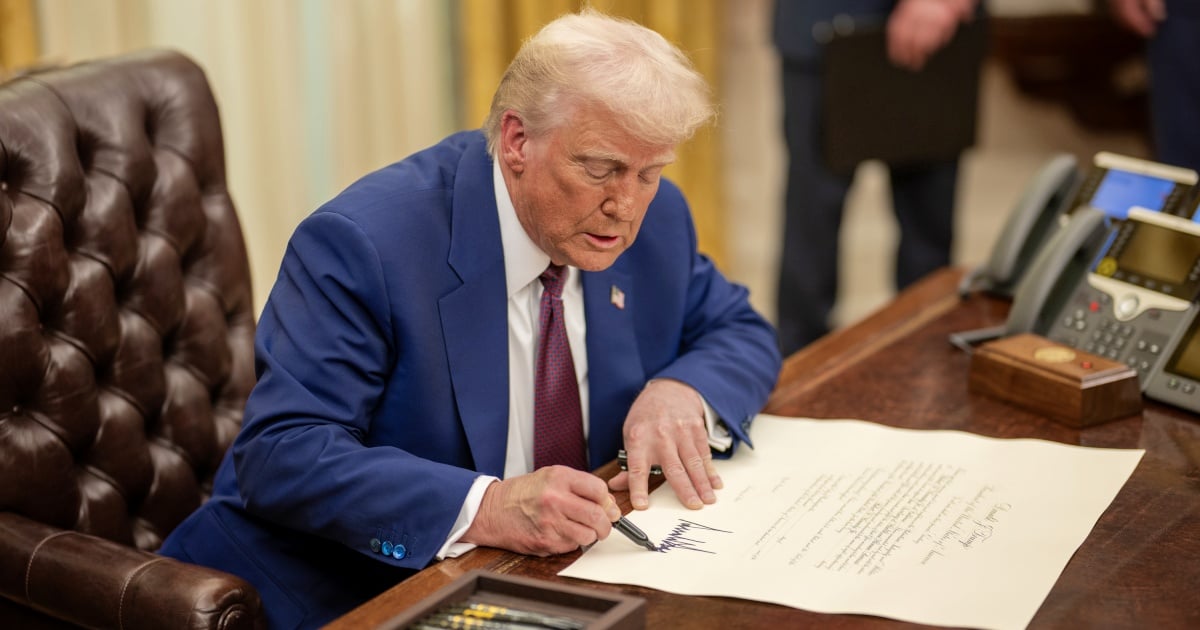On Friday, U.S. President Donald Trump signed an executive order aimed at curtailing access to American technology for countries he deems "foreign adversaries." This initiative directly impacts nations like Cuba, China, and Venezuela, focusing on strategic sectors such as artificial intelligence, semiconductors, and biotechnology advancements. The official document underscores the president's belief that "economic security is national security," emphasizing the necessity to safeguard U.S. technological infrastructure from external threats.
The Label of 'Foreign Adversaries'
The executive order formally designates China, Hong Kong, Macao, Cuba, Iran, North Korea, Russia, and the "regime of Venezuelan politician Nicolás Maduro" as "foreign adversaries," according to the text. Trump stresses the importance of protecting America's sensitive infrastructure and technologies, including those related to artificial intelligence, semiconductors, and biotechnology developments. However, the restrictions do not outline specific measures, leaving room for potential future actions.
China's Technological Influence Under Scrutiny
The order places a strong emphasis on China, citing concerns that Beijing-linked companies have leveraged investments in the U.S. to gain access to key technologies, a scenario the Trump administration views as a direct threat to national security. Additionally, the U.S. government believes the Chinese regime has used American technology to modernize its military apparatus.
Since returning to the White House on January 20, Trump has announced various trade restrictions aimed at balancing trade and pressuring countries like Mexico and Canada on issues related to migration and drug trafficking. Concerning China, the president imposed a 10% tariff on top of the duties already in place during his first term (2017-2021). These actions build on previous restrictions implemented by his predecessor, Joe Biden, who limited semiconductor and artificial intelligence technology exports to China. In retaliation, Beijing imposed export controls on graphite, a material crucial for electric vehicle battery production.
International Reactions and Potential Fallout
International policy experts have voiced concerns over the implications of these measures on U.S. diplomatic relations with the impacted countries. Some analysts warn that the restrictions could trigger trade reprisals and escalate geopolitical tensions, affecting global economic stability. Notably, China has been swift in responding to past sanctions, introducing export controls on strategic materials like graphite, vital for the electric vehicle industry.
Reactions in Washington have been mixed. While some Republican lawmakers have praised Trump's decision as a necessary step to "curb foreign influence on critical technologies," other economic and technology experts caution about possible negative repercussions on the U.S. innovation ecosystem. American tech companies might face challenges accessing certain international markets, impacting their competitiveness and development capabilities. Despite the criticisms, the Trump administration maintains that these measures are crucial for safeguarding national security interests and preventing strategic technologies from "falling into the hands of hostile actors."
Understanding the Impact of U.S. Tech Restrictions
Why did Trump sign the executive order to restrict technology access?
Trump signed the order to protect U.S. technological infrastructure from foreign adversaries, citing economic security as a component of national security.
Which countries are affected by the new restrictions?
The restrictions target countries designated as "foreign adversaries," including China, Hong Kong, Macao, Cuba, Iran, North Korea, Russia, and Venezuela.
How might these restrictions affect U.S. tech companies?
U.S. tech companies may face difficulties accessing certain international markets, potentially impacting their competitiveness and ability to innovate.
